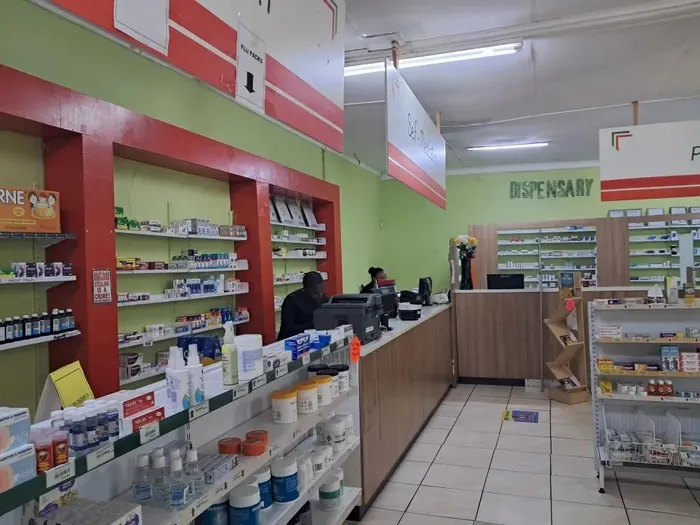
Rural pharmacies are a key resource to impoverished communities, not simply to supply medicines, but for holistic health care.
Image: Supplied
In the heart of South Africa’s rural communities, pharmacies are more than just a dispensary for medication; they are a vital lifeline for residents grappling with the challenges of accessing healthcare. For many, these local pharmacies serve as multi-service clinics, providing not only prescription medications but also medical equipment, counselling, and crucial health advice.
As the wait for doctor’s appointments stretches into weeks, the community pharmacy frequently becomes the first port of call for trusted medical assistance.
Christina Mooki, Head of Acquisition Operations at Merchant Capital, says the need for accessible healthcare is particularly pressing in outlying areas, where these establishments may represent the only reasonable option for patients. With the alarming rise in chronic diseases such as diabetes, hypertension, and HIV across South Africa, the significance of local pharmacies is only set to increase, making their expansion essential.
The statistics are revealing, says Mooki; in 2020 and 2021 alone, 648 new community pharmacies opened their doors across the nation. By the end of 2021, there were approximately 3 580 active outlets, with nearly 70% being independent pharmacies owned by local entrepreneurs. This highlights the role independent pharmacies play as small businesses that are integral to community healthcare.
Yet, every pharmacy is first and foremost a business, says Mooki. Behind the scenes, pharmacy owners navigate the complexities of supplier deliveries, unpredictable supply chains, credit terms, staffing, and escalating operational costs. The delicate balance between maintaining community health and managing a sustainable business is a unique challenge that pharmacy owners face daily.
As the burden of chronic illness continues to grow, the argument for expanding pharmacy presence becomes more pronounced. Independent pharmacies do more than dispense medications; they cut down the time and distance patients need to travel, thereby enhancing treatment accessibility and fostering local economies.
Globally, the role of pharmacies is evolving, says Mooki. No longer confined to the simple act of handing out prescriptions, many now provide additional services such as point-of-care testing, preventative health screenings, and digital health innovations. The local landscape reflects this shift, as many pharmacies add retail services to diversify their offerings, catering to modern consumer expectations.
However, running a pharmacy effectively requires a keen understanding of retail management. Passion for helping people is essential, but on its own, it won’t pay the bills. Independent pharmacies must manage cash flow judiciously, ensuring staff are compensated, suppliers are paid promptly, and stock is effectively rotated to avoid excess inventory costs. Furthermore, maintaining robust relationships with suppliers is critical to navigating financial hurdles and ensuring business continuity.
Growth requires investment, but for many small independent pharmacy owners operating on tight margins, this can be daunting. As they look to expand - whether opening a second branch, hiring additional staff or implementing new technologies - the bills come first while the revenue follows. Here, funding can play a critical role.
The independent pharmacy sector has already demonstrated its essential value to South Africa’s healthcare system, says Mooki. Moving forward, the focus must be on ensuring that these pharmacies are opened in areas where they are desperately needed. With efficient business management and improved access to funding, these indispensable establishments have the potential to expand their reach, create jobs, and ensure reliable access to essential healthcare services for their communities.